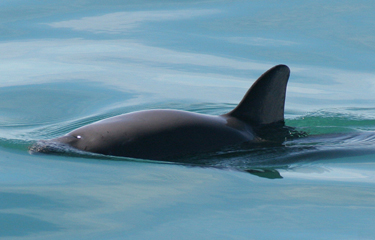The Center for Biological Diversity and the Animal Welfare Institute have sued the administration of U.S. President Donald Trump in an effort to force it to implement sanctions against Mexico for its failures to protect the highly endangered vaquita porpoise.
The CBD and AWI said the sanctions are “long overdue,” accusing the U.S. Department of the Interior of failing to respond to a 2014 petition they filed under the Administrative Procedure Act requesting the United States “certify” Mexico under the U.S. Pelly Amendment for Mexico’s “ongoing failure to halt illegal fishing of and international trade in endangered totoaba fish.”
The groups contend – and scientists have verified – that illegal fishing of the totoaba is contributing the decline and near-extinction of the vaquita, of which there remain less than 10 individuals left in the world.
“For years, Mexico has failed to enforce these bans on totoaba fishing and trade, and as a result, the vaquita population has plummeted,” the groups said in their lawsuit. “If Mexico does not take serious, immediate, and concerted action to increase enforcement, the vaquita may be extinct by next year.”
Under the Pelly Amendment, the Secretary of the Interior “shall certify” any foreign country engaging in trade or diminishing the effectiveness of protections for endangered or threatened species. That certification then authorizes the president to direct the U.S. Department of the Treasury to prohibit the import of any products from the offending country. The amendment has only been used once before – against Iceland due to its trade in whale products.
The lawsuit demands that certification, which in effect would be a ruling by the U.S. government that Mexico’s illegal totoaba fishing and trade violates and “diminishes the effectiveness” of the Convention on International Trade in Endangered Species (CITES). Once certified, Trump would still have to approve of the move to ban all imports from Mexico.
“The U.S. government’s delay in responding to the petition is unconscionable and has allowed the vaquita to teeter on the edge of extinction,” AWI Wildlife Biologist D.J. Schubert said in a press release. “The Pelly Amendment provides a tool to compel Mexico to stop illegal fishing and trade in fish products to save the world’s smallest and most endangered marine mammal. It’s time for the Trump administration to exercise its authority and put this law to use.”
According to the conservation groups, poaching of the totoaba increased over the winter, and Mexico is failing to stop the fishing and trade of the endangered fish.
In March, the United States expanded its ban on seafood imported from Mexico under the rules of the U.S. Marine Mammal Protection Act, which mandates the U.S. government act to prohibit import of seafood caught using fishing gear that kills marine mammals in excess of U.S. standards. But if Trump were to implement the Pelly Amendment trade restrictions against Mexico, all Mexican imports would be eligible to be banned.
“Mexico is still sitting on its hands while vaquita after vaquita dies in fishing nets,” Center for Biological Diversity International Program Director Sarah Uhlemann said in a press release. “We’ve tried advocacy, we’ve tried diplomacy, but we’re near the vaquita’s end. Economic pressure is necessary to force Mexico to finally wake up and stop the vaquita’s extinction.”
Photo courtesy of Wikimedia Commons







